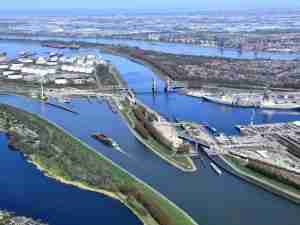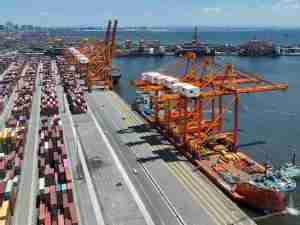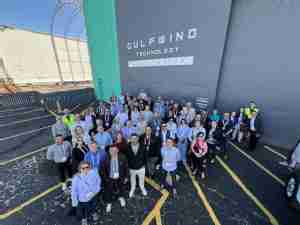Mayor Chen Chu says the city's traditional heavy industries are picking up grudgingly but that Kaohsiung as well as similar export-oriented Asian centers need to look to new businesses that add value and avoid depending on low-cost labor.
Export centers such as South Korea and Thailand will face the same dilemma as the technical sector rather than heavy industries leads economic recoveries this year, said Tony Phoo, an economist with Standard Chartered in Taipei.
Asphalt, shipbuilding and steel production, the three core industries in the city of 1.5 million, have stabilized this year following the global downturn, when Taiwan's exports plunged, Chen told Reuters.
In a swing from a year ago when freighters no longer had to wait at sea for places to berth in Kaohsiung, today cargo trucks clog intersections outside the docks as ships ply the harbor next to newly built yachts.
Taiwan exports in January 2009 dropped a record 44.1 percent year on year but orders from abroad grew faster than expected in February 2010 at 36.25 percent due to strong Chinese demand, and hope the United States and Europe will catch up.
Still, Chen isn't optimistic.
"Kaohsiung has always been about heavy industry, and that definitely took a hit from the global downturn," Chen said in an interview.
"But today's Kaohsiung still hasn't seen anything from a global economic rebound."
Port Ranking Sinks
The city's port has sunk from world No. 3 to 12 due to competition from fast-growing ports in China, while unemployment hovers at an uncomfortable 5.8 percent and citizens complain of pollution from traditional factory-driven industries, Chen said.
Kaohsiung, the island's main port city and a gritty industrial area rather than a tech hub, is a bell-wether for export-intensive Asian economies since Taiwan feels the impact of external events on trade before its regional peers as it is so integrated into the global supply chain.
"We're seeing the same thing happening across Asia," Phoo said. "We've seen a stronger recovery in tech than in the non-tech sector."
The economies of Taiwan along with Hong Kong, Singapore and South Korea, all known for fast export-related growth from the 1960s to the 1990s and worth about $1.39 trillion last year, suffered along with Japan from a collapse in global demand in late 2008, sending them into recession.
New Industries
Kaohsiung will lose competitiveness to economic powerhouse China and other more recently emerged economies without clean value-added high-tech, tourism and a future for its fledgling homegrown film industry, Chen said.
Its labor costs compared to developing nations such as Vietnam, its lack of available land for expansion and emphasis on clean air have pushed it into the new fields, she said.
Small and mid-sized businesses may also get hit if China and Taiwan sign a deal expected by June to slash tariffs, Chen said.
"Kaohsiung's exports now won't be the same as in the past," Chen said.
"There's no way to have such large-scale container traffic and so much manufacturing, because our labour and costs aren't the same as before."
Asian countries, she said, "will see a return on investments only if they move into value-added businesses."
The city will open a 105-hectare yacht-building district in 2015, creating 5,000 to 8,000 jobs to flesh out a field regarded as a local speciality, city officials said. Yacht orders from Taiwan are on the rise after dipping to 152 in the first 11 months of 2009 from 247 in 2008.
Kaohsiung seeks to make more of its cultural sector as well, after it hatched two locally famous films, one of which won prestigious Golden Horse awards last year, she said. A city warehouse district is also being retrofitted for young inventors.
Still not giving up on traditional exports, a staple for the









